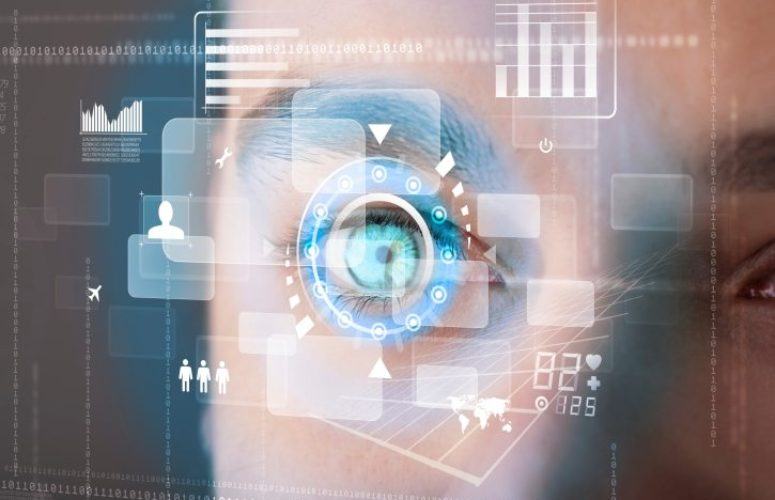
NJIT Has $1.7 Billion Annual Impact on New Jersey
On Mar 31, 2016New Jersey Institute of Technology creates at least $1.74 billion of economic value for the Garden State each year, according to a new analysis of the Newark-based research university’s economic impact. NJIT is a leading national polytechnic, STEM-focused public institution of higher education. NJIT’s unique portfolio of teaching, research, service and economic development makes it one of the largest suppliers of the technology workforce, and the largest technology incubator, in the state, according to the report.
Powering New Jersey’s Economy
The analysis, based on the work of independent consultants, found that the largest component of NJIT’s impact—stimulating new economic activity of about $724 million every year in the state of New Jersey, and approximately $350 million within the city of Newark—is a result of the university’s ongoing operations. These include its robust academic and research programs, as well as other direct operating expenditures in support of its more than 11,300-strong student body and its complement of almost 2,150 full- and part-time faculty and staff.
NJIT President Joel S. Bloom responded to the results of the economic-impact analysis with enthusiasm. “I am very pleased to see NJIT’s impact on our state and local economies. Our increased research expenditures of over $110 million (which currently place NJIT within the top five of all U.S. polytechnic universities), our faculty and facilities expansion, and our traditional role as a hub for clusters of innovation are important drivers of economic development and growth that continue to give New Jersey a competitive edge in an increasingly technology-led global economy.”
New Jersey Lt. Gov. Kim Guadagno agreed, saying: “When I travel the state meeting with business leaders they always ask me for help in connecting with our colleges and universities. This study confirms what I have been telling them. NJIT is a great resource for New Jersey companies. Through its graduates, its research and through its unique collection of programs supporting the commercial sector, NJIT is making an impact on the state’s economy disproportionate to its size.”
Joseph M. Taylor, Chairman & CEO, Panasonic Corporation of North America, said Panasonic has substantial and beneficial relationships with NJIT. “Panasonic is proud of its more than 20-year relationship with NJIT, ” Taylor said. “We partner with the university on programs to encourage STEM education. And we have had an excellent experience with NJIT students as interns and its graduates as employees. When we decided to relocate to Newark in 2013, as part of our desire to help revitalize this once great city, we knew it would also allow us to further deepen our ties with NJIT, a great plus for the corporation and our employees.”
Newark Mayor Ras Baraka noted: “While the results of the study of the economic impact of NJIT are truly impressive, they are not at all surprising. Anyone knowledgeable with Newark knows that NJIT is an important driver of the city’s improving economy and technological leadership. NJIT generously involves itself in the Newark community, providing enrichment and technological benefits to our schools, creating new jobs for Newark residents, spurring the development of new housing, and attracting the best and brighter students to our city.”
Vibrant Business Economy
The analysis also identifies the 135-year-old engineering institution’s commitment to technical assistance and extension initiatives, such as its New Jersey Health Information Technology Extension Center, and its New Jersey Manufacturing Extension Program, with a combination of new business activity and cost savings that produce additional economic output of nearly $500 million statewide each year.
“These extension centers generate economic impacts through the businesses and other agencies they assist,” explains Philadelphia-based Econsult Solutions Inc. (ESI), prime consultants that assisted with the study. “Without those efforts, the business climate within New Jersey would not be as vibrant as it is.”
Another star of the economic-impact analysis is NJIT’s Enterprise Development Center (EDC), one of the nation’s largest technology and life-science business incubators. The EDC, which currently fosters more than 90 high-potential technology ventures, promotes practical, on-the-job training and employment opportunities for more than 900 NJIT students and local area residents, while at the same time generating innovation-led business revenues and attracting out-of-state investment to New Jersey. The result of these NJIT-sponsored activities is $145 million of economic output each year for the state
“NJIT is an integral part of the innovation ecosystem of the City of Newark and the State of New Jersey,” ESI notes. “Its concentration of research activity, knowledge leaders and incubation programming ensures a healthy environment that enriches…and draws in…entrepreneurship activity. The depth and breadth of the university’s innovation effort feeds its own success and contributes to the overall economic competitiveness of the city and of the state.”
Education, Research, Service and Investments
Among other factors identified in the analysis as contributing to NJIT’s overall economic impact are: student and visitor spending, which generates more than $150 million of incremental in-state economic activity each year; the university’s ongoing program of capital investments—for instance, its new $20 million, 24,500-square-foot, state-of-the-art Life Sciences and Engineering Building, and other high-profile projects currently underway—which stimulates more than $115 million in annual economic output; and, the wage premium earned by NJIT alumni, many of whom are employed in relatively high-paying STEM-related professions, which contributes more than $105 million of annual economic output at the statewide level.
Good Neighbors
Based on accepted economic input-output models and detailed longitudinal data, the university’s impact analysis also highlights NJIT’s value-additive contributions to Essex County, and in particular to Newark. It found that the university’s overall economic impact produces more than $635 million of annual output to the Newark economy, supporting more than 4,500 jobs and increasing the city’s tax revenues by some $2.5 million each year. “NJIT is deeply invested in the well-being of the City of Newark,” ESI notes, “as demonstrated by numerous partnerships on multiple levels, and by the university’s commitment to affordability and accessibility. These have helped create a diverse and vibrant community both on- and off-campus.”
While impressive in itself, Bloom said NJIT’s economic impact is part of a much larger contribution. “In parallel with our academic and research mission, we are also equally committed to servicing the needs of our community, its commerce and its industries,” Bloom said. “It’s a relationship that is essential for applying R&D, and for promoting innovation in order to catalyze and sustain economic development and improve our quality of life. One of NJIT’s primary functions is to create partnerships and to be an enabler of the ecosystem for technology innovation and development, here in New Jersey, throughout the United States and globally.”
Related Articles:





